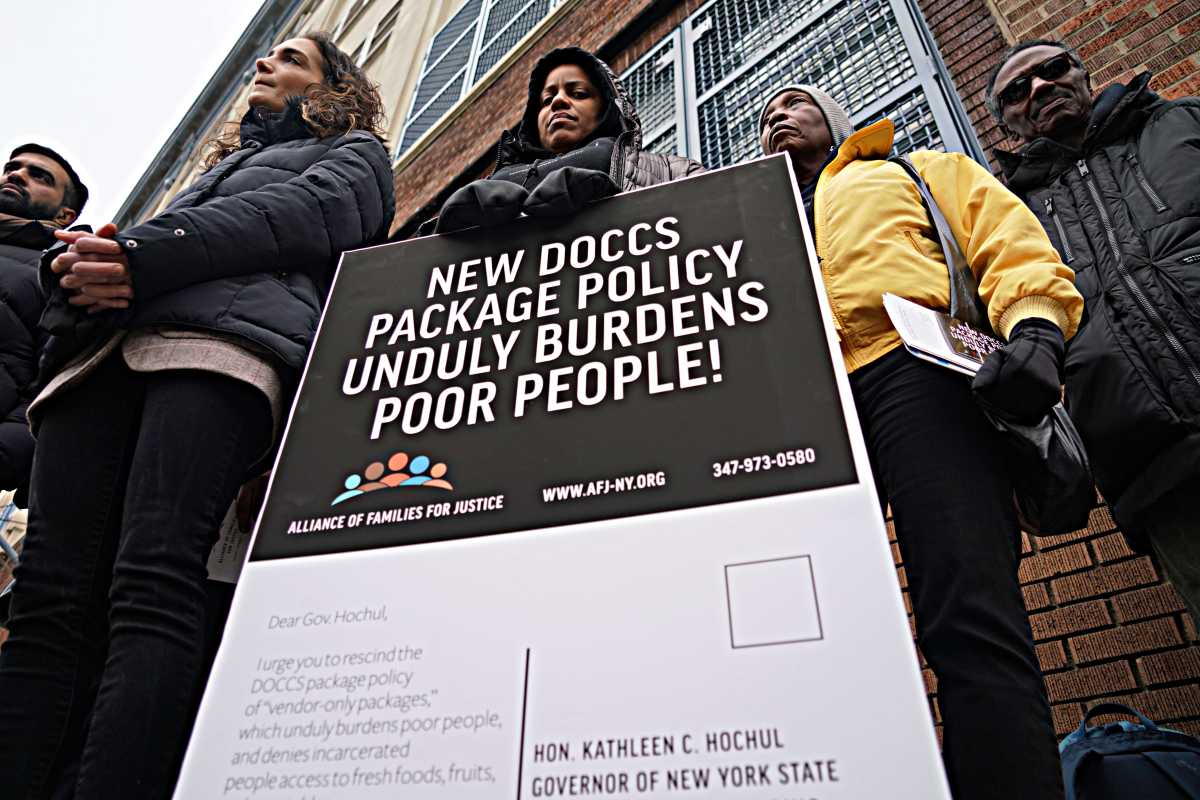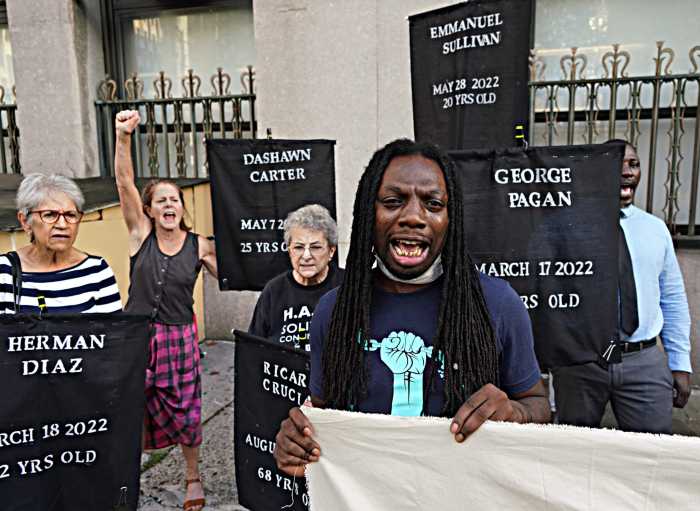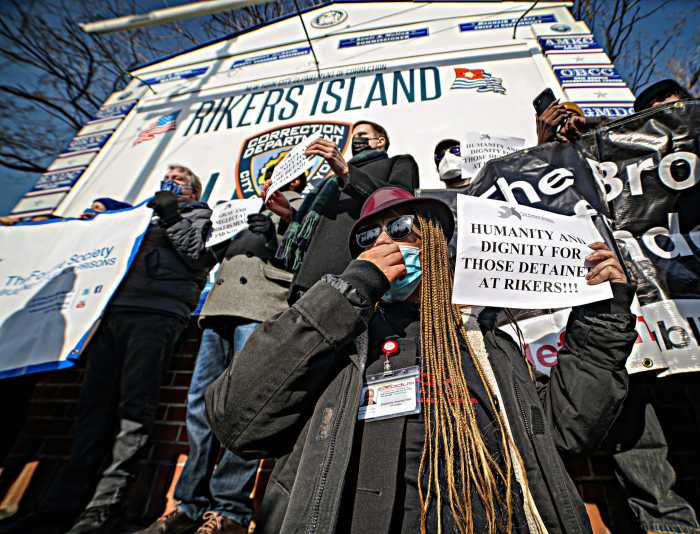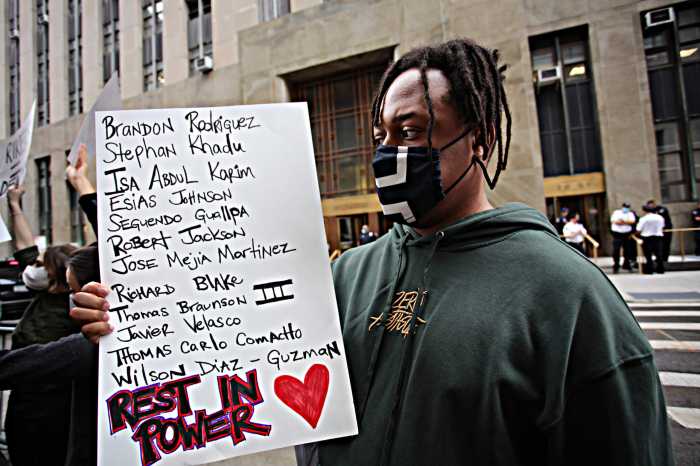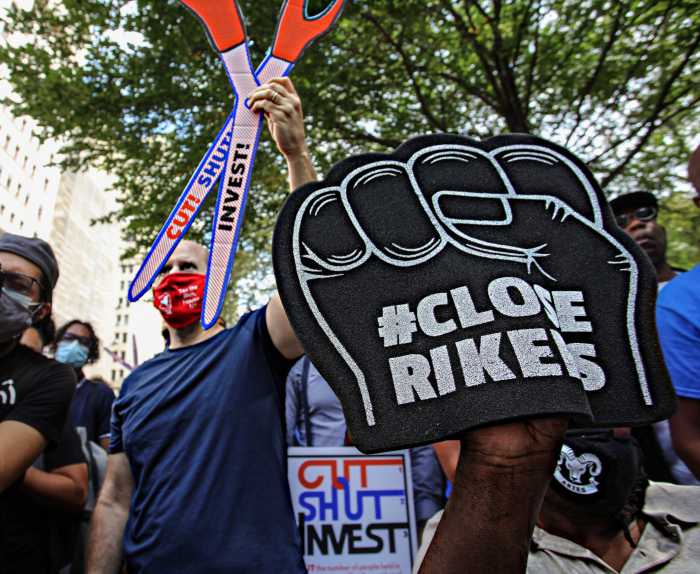Elected officials, advocates, and family members of incarcerated individuals rallied Tuesday outside Queensboro Correctional Facility in Long Island City to demand inmates be eligible to receive care packages from family members.
Demonstrators charged against state Department of Corrections and Community Supervision (DOCCS) Directive #4911A, a new program that went into effect over the summer, preventing those behind bars from receiving packages. Speakers denounced the policy since they say these parcels contain food and feminine hygiene supplies.
“Who does this policy help? I don’t get it. All you have done is squander the last bit of hope incarcerated persons have and dismantle the loving connection between them and their families. Rehabilitation cannot occur in isolation,” Assembly Member David Weprin said outside the facility at 47-04 Van Dam St. “Starving people of love and personal touch is not how you stop the violence.”
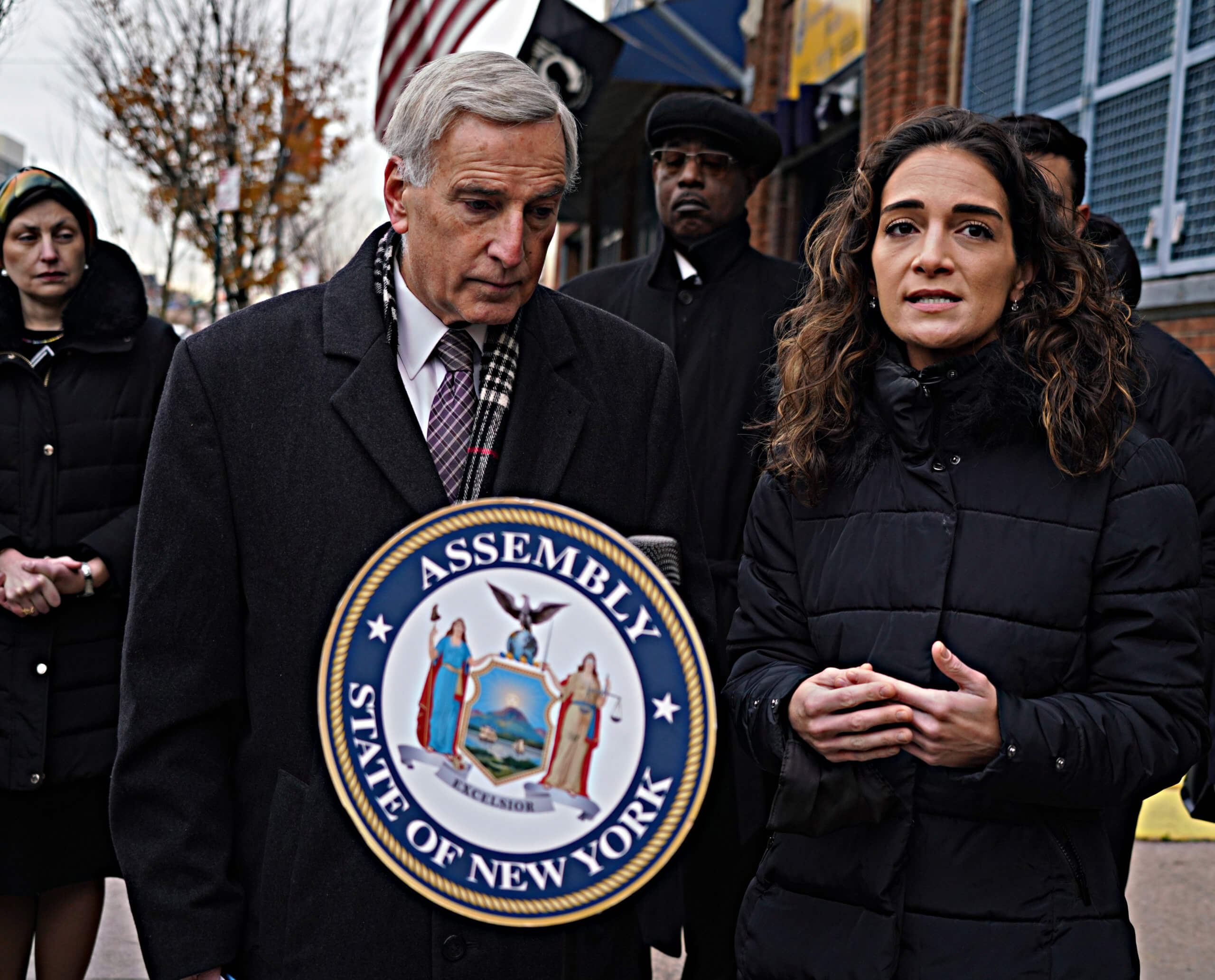
Weprin, alongside state Senator Julia Salazar, revealed that they are working on legislation to end these practices, something they hope to be pushing forth when the new legislative session in Albany starts in January. Weprin added that he has been working closely with family members of the incarcerated and advocates when drafting the bill.
Those who have experienced life on the inside firsthand spoke about the packages as not only a kind gesture that keeps them motivated while serving time but also as a life-saving measure in order to survive.
Aqirah Stanley says she was pregnant while imprisoned and that money earned while working inside is not enough to purchase commissary food.
“They are starving. They do not have the proper clothes. They do not have the proper hygiene materials. They do not have the proper food; they do not have the proper nutrition. We provide, families provide that, because the Department of Corrections does not,” Stanley roared. “It is a matter of survival. We as incarcerated individuals need to survive.”
According to Salazar and those who have spent time in prison, incarcerated workers are paid literal cents, equaling to about $15 every two weeks. This leaves them unable able to purchase food from the commissary due to hiked up prices.
“Keep in mind that the items that are sold in commissary and facilities are often much more expensive than they even are at the supermarket. Think about when you go to the supermarket and you see the impact of cost increases of inflation, how that impacts any one of us who is able to go to the supermarket. And then imagine the impact that we see when that translates to vendors, to commissary, to items that are sold in correctional facilities,” Salazar said.
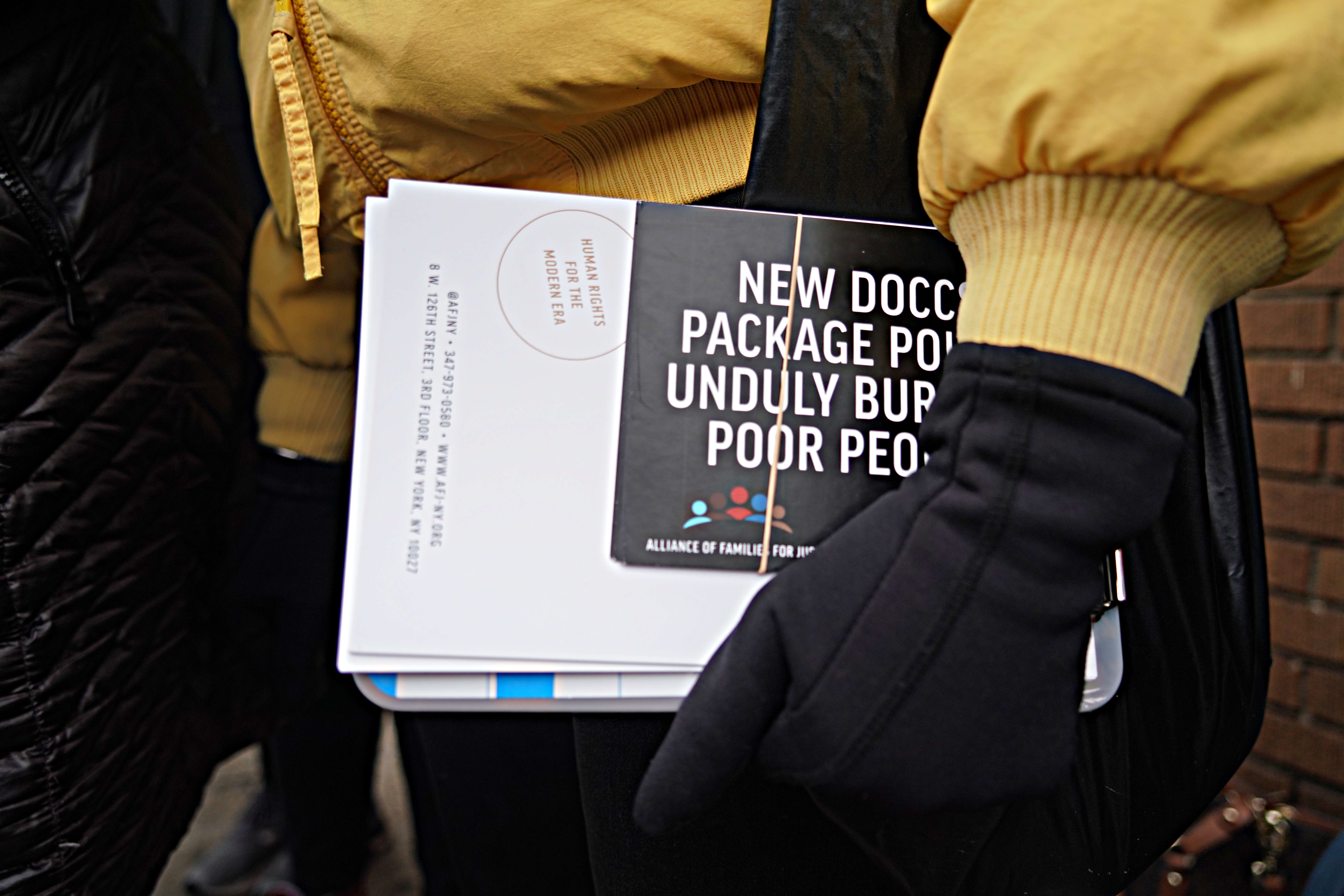
DOCCS states that safety is their top priority, and upon the recommendation from the Prison Violence Task Force it was found that there was a significant increase in the number of packages found to contain contraband drugs and weapons. To address this, DOCCS Directive #4911A was implemented as a safety precaution.
“The presence of contraband in correctional facilities exacerbates violence and enables illicit drug use,” part of a statement from DOCCS read. It was also underscored that the facility provides hygiene products upon the request of the inmate and is free of charge.
According to DOCCS findings, since the program was implemented, there has been a significant drop in contraband items recovered.
“As of the end of October, the Department has seen an 81% drop in the number of contraband items recovered in facility package rooms since the implementation of the package program: 112 contraband items were recovered in package rooms prior to implementation compared to 21 contraband items recovered in package rooms following the implementation,” a DOCCS representative wrote in a statement.
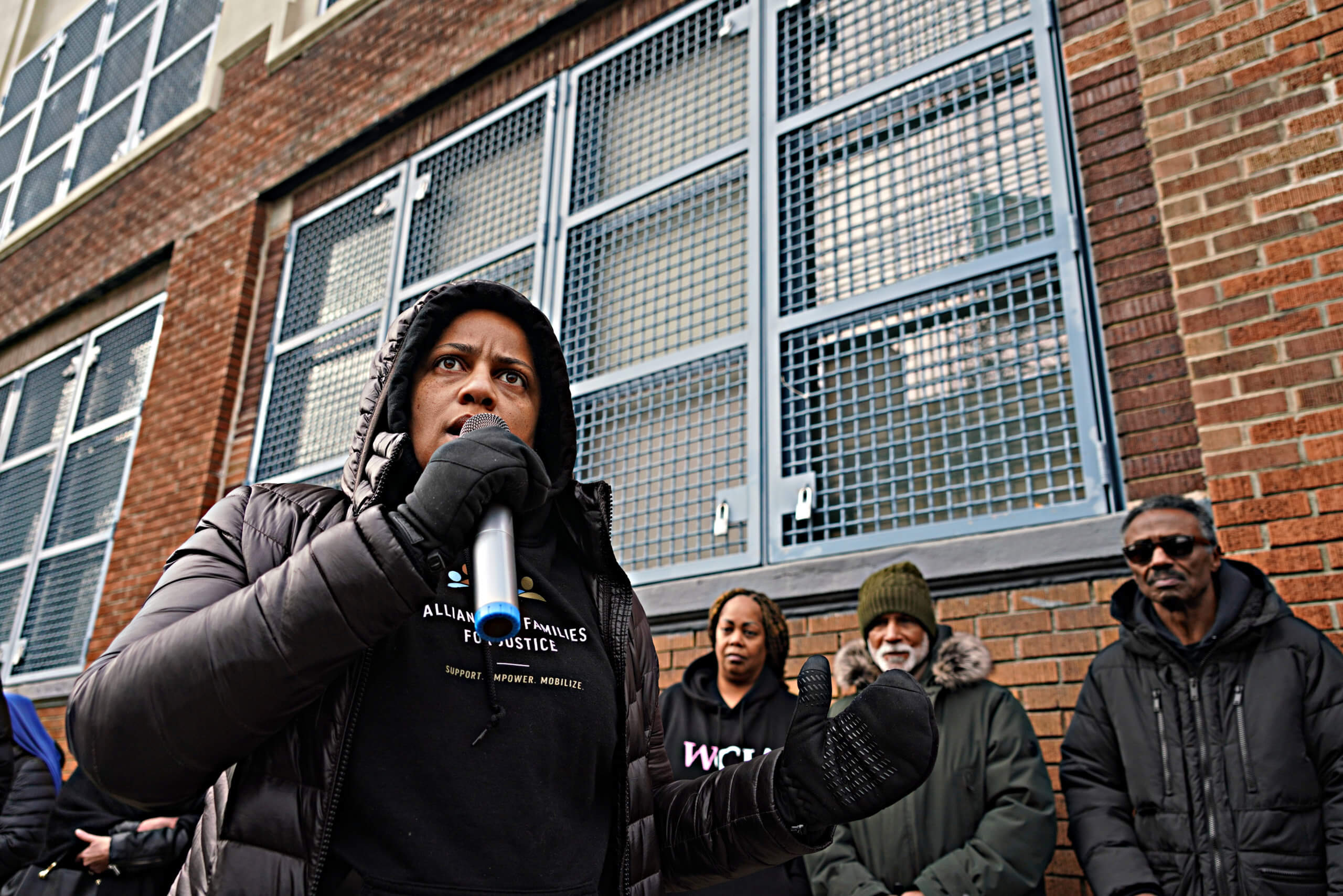
Additionally, DOCCS credits the program for a 21% decrease in the Departments use of Narcan since the last year (266 Narcan uses from April 1 to Oct. 31, 2022, compared to 336 uses during the same time frame last year.) There has also been an increase, by 69%, of arrests for individuals attempting to bring in contraband into a correctional facility.
While DOCCS claims that preventing package deliveries deters violence due to avoiding contraband, those on the other side believe it only exacerbates it due to hunger and jealously between those who don’t have food and those who do.



